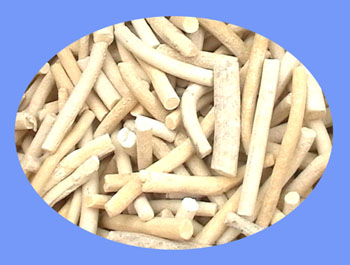Lactating Red Date Tea 发奶红枣茶
Haha, Yeah, I'm all into anything that gives me more milk. Just anything!!!
This time around I changed my red date tea formula. After reading on the internet about galactagogues, I got to know a common Chinese herb is one of it. It's astragalus root , 黃耆 or 北耆. My mom will sometimes put this into her soups. And then I went searching for 发奶茶 (lactating tea), and got to know another herb that is used, which is Rice Paper Pith, 通草. It is commonly found in herbal teas that promote urination like "Hui Sap Sui 去湿水".
This time around I changed my red date tea formula. After reading on the internet about galactagogues, I got to know a common Chinese herb is one of it. It's astragalus root , 黃耆 or 北耆. My mom will sometimes put this into her soups. And then I went searching for 发奶茶 (lactating tea), and got to know another herb that is used, which is Rice Paper Pith, 通草. It is commonly found in herbal teas that promote urination like "Hui Sap Sui 去湿水".
When I went to the Chinese herbal shop to buy my bulk of herbs, the herbalist asked me why am I buying so much rice paper pith.
He said, "What do you want to 通(toong, meaning unclog) ??
Well, they have never encountered anyone buying 150gm of it. It sounds little, right? But it's so light weight that 150gm is one big plastic bag of it. Almost like the size of a basketball.
I told him, "I want to make 发奶茶 (lactating tea)."
Then to my surprise, the male herbalist said slumberly, "Oh, you want to unclog your breasts!" (Oh, Lei yiu toong nin, in Cantonese).
His female workers' eyes went big (while sheepishly giggling) and so did mine. I never expect him to use such a word. I almost wanted to burst into laughter. There was no sexual tones there, but the words he used was totally unexpected, to be do direct. Much to the surprise of all the women there. He just went on with his work while his workers packed my bulk of herbs. I went back to the car like Santa with his bag. That much of stuff for 1 month's red date tea.
He said, "What do you want to 通(toong, meaning unclog) ??
Well, they have never encountered anyone buying 150gm of it. It sounds little, right? But it's so light weight that 150gm is one big plastic bag of it. Almost like the size of a basketball.
I told him, "I want to make 发奶茶 (lactating tea)."
Then to my surprise, the male herbalist said slumberly, "Oh, you want to unclog your breasts!" (Oh, Lei yiu toong nin, in Cantonese).
His female workers' eyes went big (while sheepishly giggling) and so did mine. I never expect him to use such a word. I almost wanted to burst into laughter. There was no sexual tones there, but the words he used was totally unexpected, to be do direct. Much to the surprise of all the women there. He just went on with his work while his workers packed my bulk of herbs. I went back to the car like Santa with his bag. That much of stuff for 1 month's red date tea.
This is the formula I did this time.
Lactating Red Date Tea
Recipe source: Wendyywy
Red Dates 红枣 : 90gm
Black Dates 黑枣 : 60gm
Dangshen 党参 : 30gm
Dried Longan flesh 龙眼肉 : 30gm
Wolfberry 枸杞子 : 20gm
Astragalus 北耆 : 10gm
Rice Paper Pith 通草 :6gm
Black Dates 黑枣 : 60gm
Dangshen 党参 : 30gm
Dried Longan flesh 龙眼肉 : 30gm
Wolfberry 枸杞子 : 20gm
Astragalus 北耆 : 10gm
Rice Paper Pith 通草 :6gm
1. Remove seeds from red and black dates. Rinse dates.
2. Rinse dangshen in water to remove dirt.
3. Give wolfberry, rice paper pith and astragalus a quick rinse.
4. Put everything into a pot together with 4L of water. Bring to a boil and simmer for at least 2 hours.
5. Consume this throughout the day.
If you want to consume this for 20 days, then calculate the amount needed and purchase from Chinese Herbal Shops. For me, I drink this from the day I am discharged until full moon.
About Ricepaper Pith (tong cao)
http://www.tcmtreatment.com/herbs/0-tongcao.htm

Ricepaper Pith (tong cao)
Medulla Tetrapanacis
Properties: The herb is sweet and tasteless in flavour, and slightly cold in nature.It cats on lung and stomach channels. Being sweet and tasteless for inducing diuresis and excreting dampness, and slightly cold for clearing heat, the herb can ensure proper downward flowing of heat to treat stranguria, and clear breast channel to stimulate milk secretion. It has the effects of clearing heat, inducing diuresis, promoting Qi circulation and stimulating milk secretion. The herb is indicated for stranguria due to heat, galactostasis and other syndromes.
Effects: Clearing heat and dampness and stimulating milk secretion.
Indications:
1. The herb can be used in combination with plantain seed, raw liquorice root, fringed pink and other herbs for inducing diuresis and treating stranguria, to treat damp-heat in the lower-jiao, scanty dark urine and dribbling urination with difficulty and pain; and with umbellate pore-fungus, poria, areca seed and other herbs of inducing diuresis and alleviating edema, to treat edema, abdominal distention and dysurial. 2. The herb can be used in combination with cowherb seed, pangolin scales, bupleurum root, globethistle root and other herbs for promoting blood and Qi circulation and stimulating milk secretion, to treat puerperal galactostasis due to stagnation and obstruction of the breast channel; and with Chinese angelica root, astragalus root, cowherb seed and other herbs for invigorating Qi, nourishing blood and stimulating milk secretion, to treat galactostasis due to deficiency of Qi and blood.
Dosage and Administration: 3-6g.

No comments:
Post a Comment